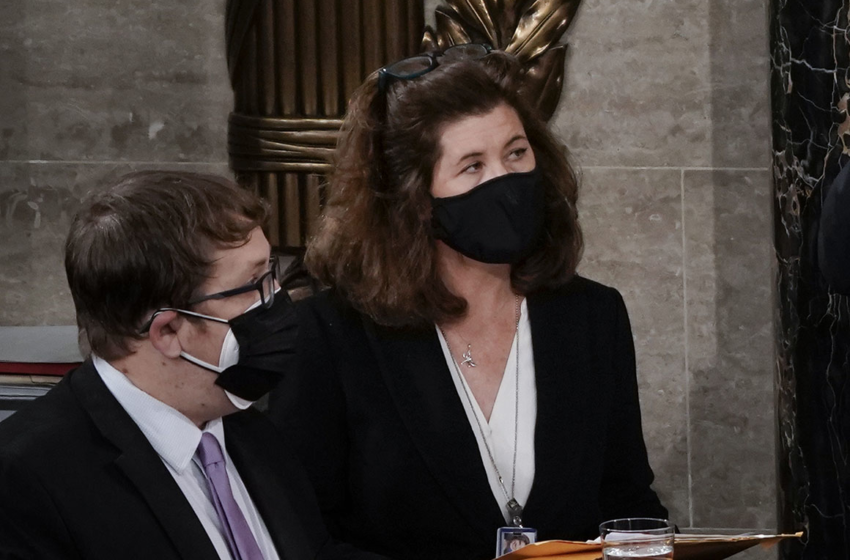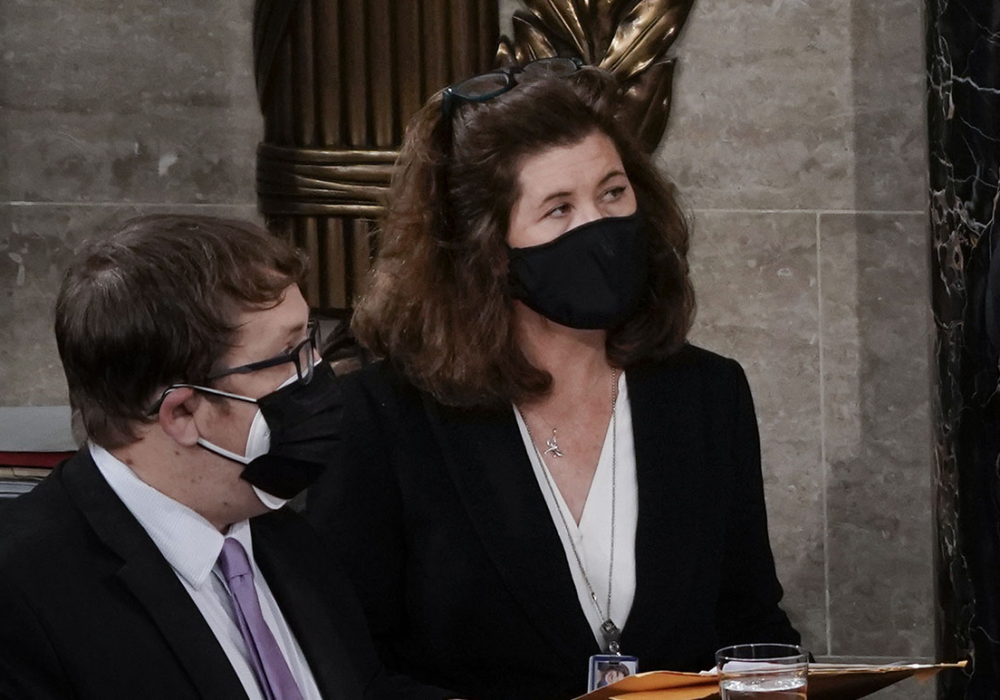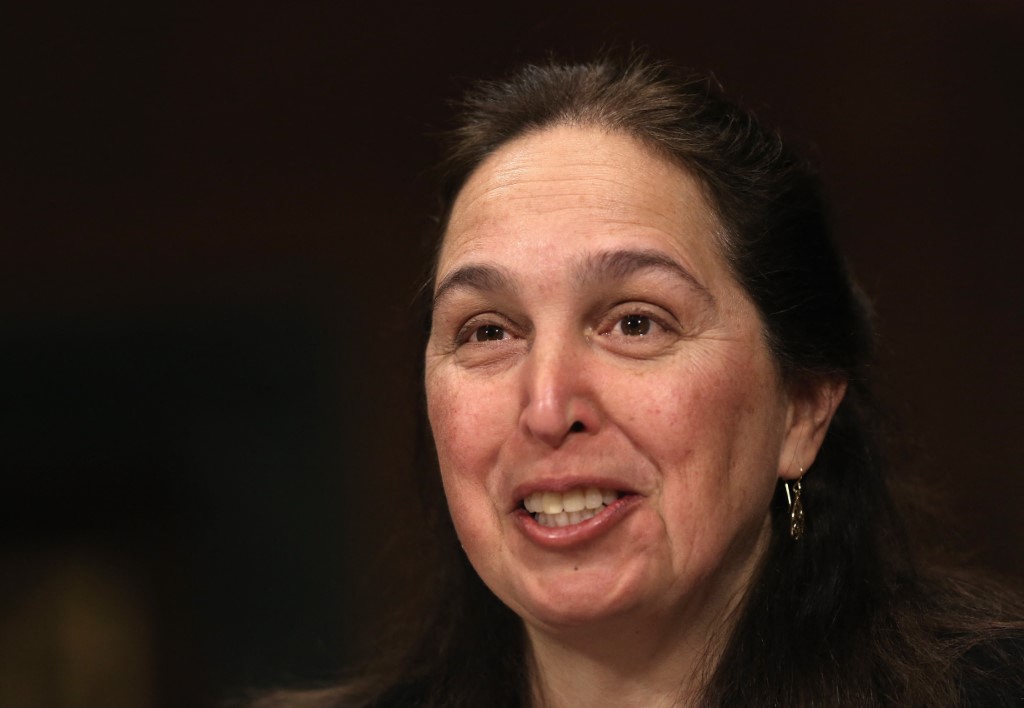The parliamentarian’s final rulings will almost certainly change vital provisions in the version of the bill that’s likely headed for a doomed Senate vote. As the nonpartisan rules referee’s scrubbing wraps up on dozens of policies currently in the legislation, several of them could be in peril: tax credits for union-built electric vehicles, caps on out-of-pocket costs for Americans who need insulin and student aid to some undocumented immigrants who came to the United States as children.
“We’ve got two issues: No Republican support,” which leaves no margin of error in the Senate, Budget Chair Bernie Sanders (I-Vt.) explained in a recent interview. “And then on top of all that, you’ve got the parliamentarian determining what is in a sense germane [and] what is incidental. And that makes it that much harder. A lot of people don’t understand.”
Several policies in the package have already been axed by the parliamentarian office, which ruled this month that the core of the bill’s immigration reform plan doesn’t jibe with Senate rules for the special process the majority party is using.
Manchin tends to get all of the credit — or take all of the blame, depending on who’s speaking — for threatening popular provisions of his party’s bill, like an extension of the expanded child tax credit. But the parliamentarian’s office is arguably a bigger hurdle for several of the social spending measure’s biggest centerpieces. Democratic leaders believed they had thoroughly pre-vetted the legislation to work under the budget reconciliation process that they’re using to pass it along party lines, but the immigration setback still disappointed some in the party.
“It is a very clumsy way to do anything,” Sanders said. “But it’s the only tool that we have if we’re going to pass something significant when you have an entire Republican Party in opposition.”
Essentially, the rules referee is charged with ensuring that every piece of the social spending bill has a sufficiently significant impact on federal spending, revenues or debt, and that the policies the bill makes don’t outweigh their potential budget effects.
It’s that latter requirement that’s meant multiple rounds of bad news for Democrats’ ambitions on immigration reform. Despite repeated revisions crafted in an attempt to satisfy the chamber’s arcane budgetary rules, the parliamentarian nixed two earlier bids before her latest quashing of House-passed immigration language that would extend work permits and provide temporary deportation protection for certain undocumented people who came to the U.S. before 2011.
Earlier this year, she objected to an initial proposal that would provide undocumented people a pathway to citizenship, in addition to a backup plan that would change the date on a decades-old registry law to provide more undocumented people a path to legal status. While Senate Democrats have disagreed with the parliamentarian’s decisions, they have no plans to take the politically divisive step of trying to overrule her.
After the most recent immigration ruling, Senate Judiciary Chair Dick Durbin (D-Ill.) said his party is “considering what options remain.”
But with such a slim majority in the Senate, Democrats have no real way to push through their desired policies that the parliamentarian nixes, absent the huge task of winning 10 GOP votes. Republicans, who also faced off with the parliamentarian when they deployed reconciliation to pass their 2017 tax overhaul, say each new ruling serves as a reminder that the filibuster-proofing of reconciliation comes at a high price.
“Seems like we have to learn the lesson over and over again — that there are limits in reconciliation, and that it should be the last resort instead of the first resort,” said Sen. Roy Blunt (R-Mo.).
In November 2017, the parliamentarian sent the GOP scrambling to rewrite their tax bill after tossing a crucial provision designed to win over Republican holdouts and prevent hundreds of billions in deficit spending.
That same year, Republicans got shot down on several pieces of their plan to repeal Obamacare. The parliamentarian said the GOP’s proposals to defund Planned Parenthood and ban coverage of abortion in Obamacare insurance plans didn’t comply with the same budget rules at play this year.
Sen. John Neely Kennedy (R-La.) said this month that the parliamentarian’s feedback during the GOP’s anti-Obamacare push was illuminating for lawmakers in both parties as they tried to gauge the limitations of budget rules.
“Particularly when we were addressing health care, all of us learned a lot about it,” said Kennedy, a newly elected senator in 2017 when his party began pushing the Obamacare repeal legislation and tax overhaul.
As for Biden’s expansive social policy package, Democratic leaders also anticipate feedback from the parliamentarian’s office on proposals that would ding drugmakers for raising prices faster than inflation, exclude students who attend for-profit universities from receiving a $550 increase in yearly aid under the Pell grant program and boost Medicaid payments to hospitals that largely serve low-income patients.
“It’s crazy that we have a system where we have this carve-out for things that relate to the budget,” said Sen. Chris Van Hollen (D-Md.). “And the parliamentarian becomes the judge and jury.”
Burgess Everett, Alice Miranda Ollstein, Michael Stratford and Marianne Levine contributed to this report.






